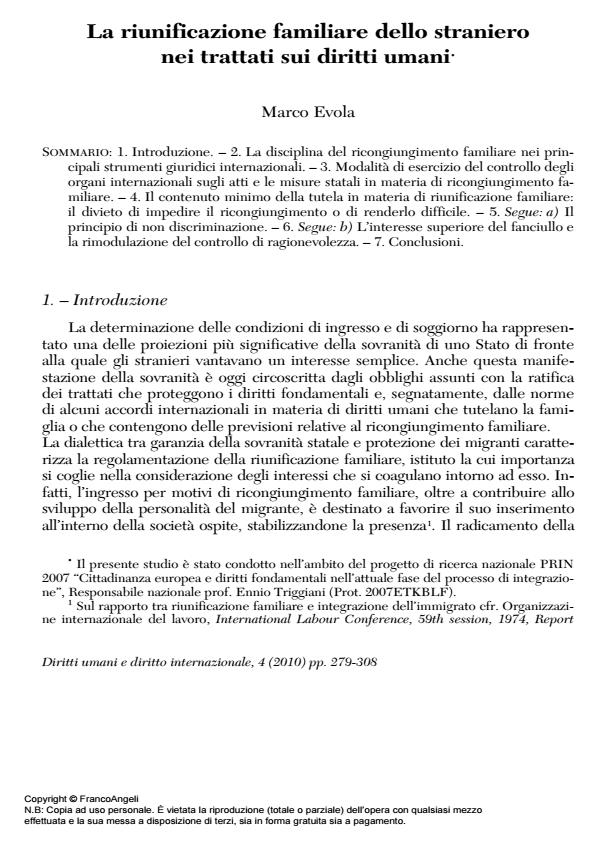Family reunification of aliens in international conventions on human rights
Journal title DIRITTI UMANI E DIRITTO INTERNAZIONALE
Author/s Marco Evola
Publishing Year 2010 Issue 2010/2 Language Italian
Pages 30 P. 279-308 File size 558 KB
DOI 10.3280/DUDI2010-002002
DOI is like a bar code for intellectual property: to have more infomation
click here
Below, you can see the article first page
If you want to buy this article in PDF format, you can do it, following the instructions to buy download credits

FrancoAngeli is member of Publishers International Linking Association, Inc (PILA), a not-for-profit association which run the CrossRef service enabling links to and from online scholarly content.
Family reunification contributes to the integration of aliens in the countries of destination and the development of their personality as well, but it entails the increase in the demand for social facilities. As a consequence States tend to reduce the opportunities for family reunification. The study analyses the activity of the organs of control set up by the international conventions on human rights and aims at identifying the obligations on States’ sovereignty stemming from the rules of these conventions protecting family life or disciplining family reunification. In assessing the lawfulness of States’ rules on family reunification or decisions on individual cases these organs verify whether States have struck a fair balance between the competing interests of the individual and the community as a whole. The structure of the balance is based on similar criteria. Although no international conventions on human rights enshrine a right to family reunification, the protection of family ensure aliens the right to have their application examined and balanced against the interests of the community. Furthermore, States cannot prohibit in general terms family reunion or introduce conditions impossible or hard to satisfy. At the same time States have to respect the principle of no discrimination. Eventually, the primary consideration of the best interest of the child tends to reshape the fair balance test and impose on States the obligation to demonstrate additional factors justifying their decisions that go beyond the enforcement of their immigration law.
Marco Evola, La riunificazione familiare dello straniero nei trattati sui diritti umani in "DIRITTI UMANI E DIRITTO INTERNAZIONALE" 2/2010, pp 279-308, DOI: 10.3280/DUDI2010-002002